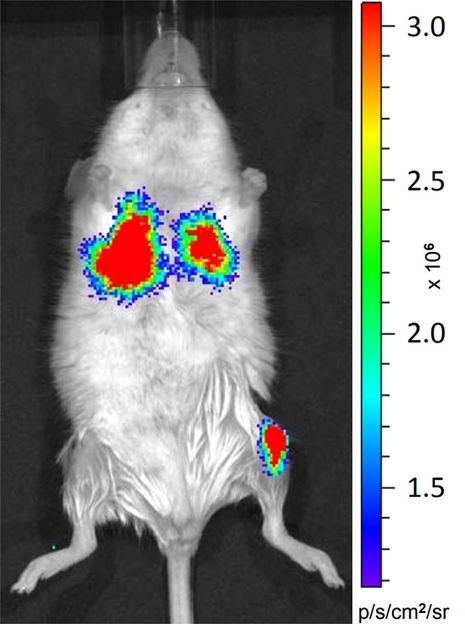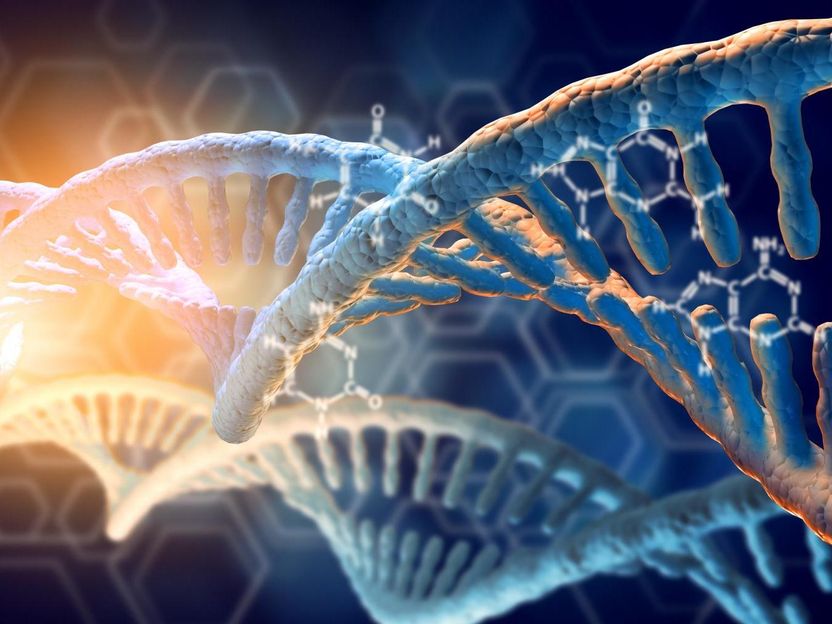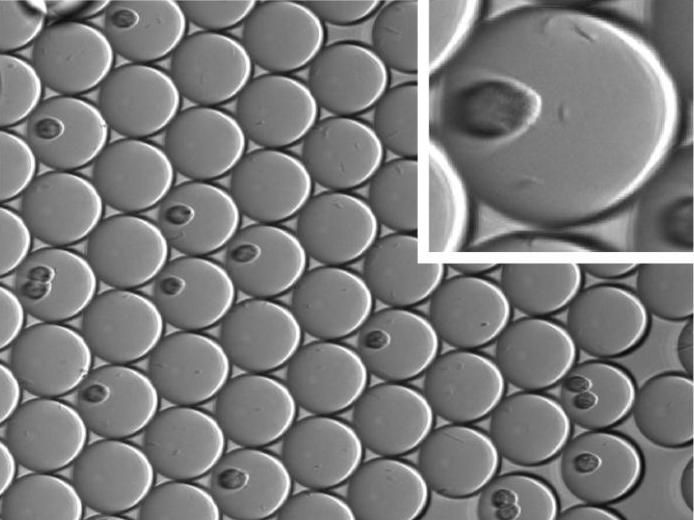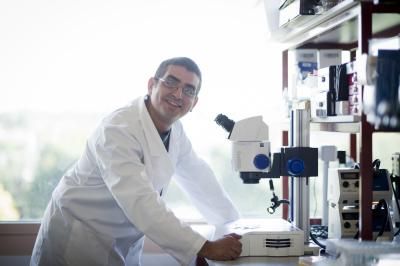New 'control knobs' for stem cells identified
Tufts study shows that changes in membrane voltage control timing of differentiation in adult stem cells
Natural changes in voltage that occur across the membrane of adult human stem cells are a powerful controlling factor in the process by which these stem cells differentiate, according to research published by Tufts University scientists. Tufts doctoral student Sarah Sundelacruz, Professor of biology Michael Levin, and Chair of Biomedical Engineering David L. Kaplan published their paper "Membrane Potential Controls Adipogenic and Osteogenic Differentiation of Mesenchymal Stem Cells" in PLoS ONE.
"We have found that voltage changes act as a signal to delay or accelerate the decision of a stem cell to drop out of a stem state and differentiate into a specific cell type. This discovery gives scientists in regenerative medicine a new set of control knobs to use in ongoing efforts to shape the behavior of adult stem cells," said Levin. "In addition, by uncovering a new mechanism by which these cells are controlled in the human body, this research suggests potential future diagnostic applications."
Harnessing the potential of stem cells for applications such as wound healing and tissue regeneration is a tantalizing yet daunting task. Although many studies indicate that electrophysiology plays a crucial role in cell proliferation and differentiation, its functional role in stem cell biology is poorly understood.
The Tufts researchers studied the changes in membrane potential shown by human mesenchymal stem cells (hMSCs) obtained from donor bone marrow as the hMSCs were differentiating into fat and bone cells. They found that hyperpolarization (increased difference between the voltage in the interior and exterior of a cell) was characteristic of differentiated cells compared with undifferentiated cells and that hMSCs show different membrane potential profiles during bone vs. fat differentiation.
To determine whether hyperpolarization was functionally required for differentiation, the scientists depolarized the hMSCs by exposing them either to high levels of extracellular potassium ions or to ouabain, a compound that blocks the transfer of ions in and out of cells. Both treatments disrupted the normal increase in negative voltage that occurs during differentiation and suppressed fat and bone cell differentiation markers.
In contrast, treatment with hyperpolarizing reagents up-regulated bone cell markers – indicating that voltage changes are not merely permissive for differentiation but can act as an instructive signal to either induce or inhibit differentiation.
More study is needed to determine whether hyperpolarization also determines which specific type of cell stem cells will differentiate into, according to the Tufts researchers.
Most read news
Topics
Related link
Other news from the department science

Get the life science industry in your inbox
By submitting this form you agree that LUMITOS AG will send you the newsletter(s) selected above by email. Your data will not be passed on to third parties. Your data will be stored and processed in accordance with our data protection regulations. LUMITOS may contact you by email for the purpose of advertising or market and opinion surveys. You can revoke your consent at any time without giving reasons to LUMITOS AG, Ernst-Augustin-Str. 2, 12489 Berlin, Germany or by e-mail at revoke@lumitos.com with effect for the future. In addition, each email contains a link to unsubscribe from the corresponding newsletter.
Most read news
More news from our other portals
Last viewed contents
Qigong
Amphetamine

Why a little is too much in intra-bone marrow transplantation in mice - Quality, not quantity

New method for producing synthetic DNA - Chemically synthesized short DNA sequences are extremely important ingredients with countless uses
Paresthesia
Diclofenac
Phill_Wilson
Majewski's_polydactyly_syndrome
Synarc to Combine with Center for Clinical and Basic Research






















































